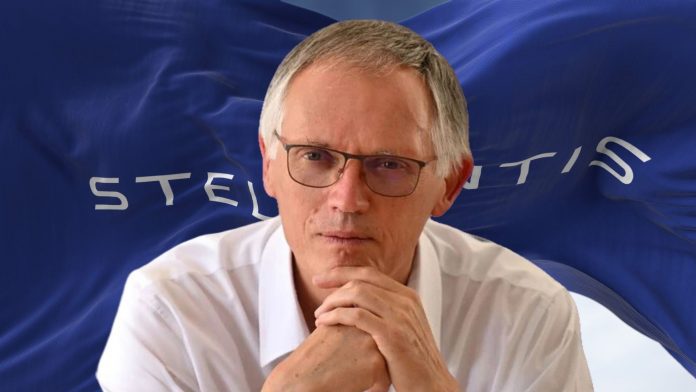Stellantis CEO Carlos Tavares has stepped down effective immediately, ending nearly four years at the helm of the automaker formed through the merger of PSA Group and Fiat Chrysler Automobiles in 2021.
The surprise resignation follows months of criticism from investors, dealers, unions, and political figures as the company grapples with sliding U.S. sales, bloated inventories, and internal discord.
In a Dec. 1 statement, Stellantis Chairman John Elkann acknowledged Tavares’ contributions, including steering the company through its formative years. However, he confirmed that recent disagreements between Tavares and the board prompted the decision. Henri de Castries, the company’s Senior Independent Director, echoed this sentiment, stating that the alignment between stakeholders underpinning Stellantis’ early success had fractured.
The automaker has established an interim executive committee chaired by Elkann, while a special board committee leads the search for a new CEO. The process is expected to conclude by mid-2025.
Tavares, known for cost-cutting measures and operational turnarounds at PSA Group and Opel, initially impressed stakeholders by streamlining Stellantis’ vehicle platforms and improving efficiency. However, tensions escalated in 2024 as dealers criticized him for mismanaging key U.S. brands like Jeep, Dodge, and Ram. Unions also condemned his approach to job cuts and plant closures.
For instance, the United Auto Workers (UAW), led by President Shawn Fain, publicly called for Tavares’ ouster, accusing him of neglecting commitments to American workers and communities. “Tavares is leaving behind a mess of painful layoffs and overpriced vehicles sitting on dealership lots,” Fain said in a statement, adding that the union welcomes new leadership to ensure Stellantis invests in its workforce and fulfills its obligations under its 2023 contract.
In the U.S., outdated models and a poorly executed marketing strategy have undermined Stellantis’ profitability, leading to significant inventory surpluses and a 38% decline in stock value over the past year. Globally, the automaker is facing heightened political pressure, particularly in light of potential tariffs from the incoming U.S. administration, which could disrupt operations in Mexico and Canada.
Stellantis has confirmed its adjusted financial guidance 2024, projecting an operating income margin of 5.5–7% and free cash flows down to $10 billion. However, analysts predict turbulent times ahead for the automaker’s next CEO.
Despite the challenges, Elkann expressed confidence in the company’s ability to navigate this transition. “We remain committed to our long-term strategy and ensuring the success of Stellantis for all stakeholders,” he said.
The search for a new CEO comes at a critical time for Stellantis, which is seeking to stabilize its operations and regain its footing in key markets.




